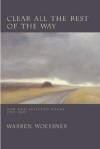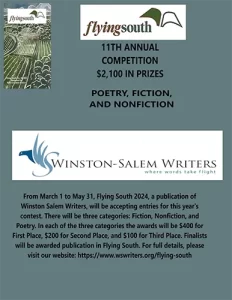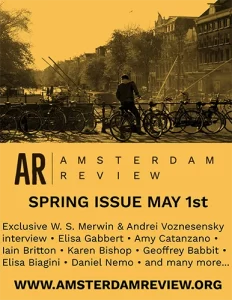Clear All the Rest of the Way
The Midwestern voice has been with us long enough now that sometimes we forget that, like all innovations, it once required inventing. The Chinese capacity for understatement is something that I have also taken for granted, not remembering that such stances would be considered a departure from our American ancestors of Whitman and Dickenson. Warren Woessner recently reminded me of this unexpected connection between the Minnesota miller and Tang aristocrat in a brief interview below his Minneapolis law office, eloquently providing his own juxtaposition.
The Midwestern voice has been with us long enough now that sometimes we forget that, like all innovations, it once required inventing. The Chinese capacity for understatement is something that I have also taken for granted, not remembering that such stances would be considered a departure from our American ancestors of Whitman and Dickenson. Warren Woessner recently reminded me of this unexpected connection between the Minnesota miller and Tang aristocrat in a brief interview below his Minneapolis law office, eloquently providing his own juxtaposition.
Modesty, he notes, is a key descriptor of the similarities between these disparate traditions. This allows for a rich density of meaning in simple, conversational lines as irony and implication render the line heavy. In the poem that opens the first section of the book, “The Men Who Fish,” Woessner describes employees who have suffered nerve damage at the dye factory and are allowed to fish instead of work to avoid lawsuits:
Good dye, it stuck
to skin. In the showers
we scrubbed with permanganate
to burn it out, then bleached
purple skin with Clorox
to get white again. Clean
as the river, as the fish
they caught, threw back,
caught again.
Woessner uses his chemistry background to good advantage, accenting the bleakness of industrial ruin with matter-of-fact use of jargon while continuing traditions generally associated with Midwestern voices: epistles and elegies, factoids, and a sleepy-hazy dreaminess carrying over into low-flying fantasy.
Along the way, we encounter our fair share of wry humor and mystery. Based on real impressions, the scenes he paints serve as guideposts to remind us of the arduous journey we each make through this land and life, squinting for meaning just out of reach. Sometimes Woessner may reach too far, falling prey to the common pitfall of forcing meaning into every breath and scene, as in “January 1st,” “Then an eagle is overhead, / almost too high to see. / But they see it and are up / all at once, beating upstream. / Silence. Six degrees / below zero. Time / to move on.” When not overdone, we have some great effects, as in “Hidden Beach”:
By noon, pickups
and junkers crowd
the lot. No fee
less beach –
…
Around the bend of inlet
dozens of Horseshoe Crabs
mating frothing
the clear water
with milky sperm
Oblivious to the taker.
…
I backtrack
fast to bright beach
where, like birds, crabs
or kids, I can see
what’s coming
a long way off.
The humor Woessner uses can be ironic at the “expense” of city folk, and has its fun moments, such as “You were all warm / and curled up to me / like an otter I said / Otter you said / that’s some kinda rodent / isn’t it? / Yes I guess / I meant to say / mink / City girl / doesn’t mind / mink”
The rhythms of these poems are deliberate and generally well conceived, but can feel unpolished. This can work well in tandem with the irony or humor, but Woessner sometimes overdoes it, as in “High Summer,” “Cattails surround the pond. / Ducks and turtles loaf on logs. / Songs slow in the woods. / Herons stand still.” The lines successively lose a syllable, but when combined with the surrounding text, provides at least one slow line too many. For an example of better control, “The Loon” starts with a few strongly rhyming lines and then degenerates, changing the tenor of the incantation:
The loon’s three-note cry
cleaves the water from the sky,
stills the night on the lake,
and turns my dreams around.
Years ago, on the Sound,
the foghorn on Eaton’s Neck
unerringly found me,
shivering in Grandpa’s cold bed.
Then I imagined schooners
ripped apart on the reef.
The loon song is better news
for the North – clean water,
enough food and room –
all clear for now.
The collection starts with some sensual, jazzy notes set in New York City, which, when combined with a Midwestern presence, produces a picture of a complex, wandering soul carrying his words around to whomever would hear. This is amplified by the many moments that unabashedly call up Leonard Cohen, such as these lines from “Letter to Hilton from Madison”: “I’m not sure if I’m lonely, / But I’m going to stick around and find out.” More of these unbalancing modulations would have been welcome, but instead Woessner entrenches himself ever more solidly in his clean, northern landscapes, finally coming around to a solid, if expected, conclusion.





